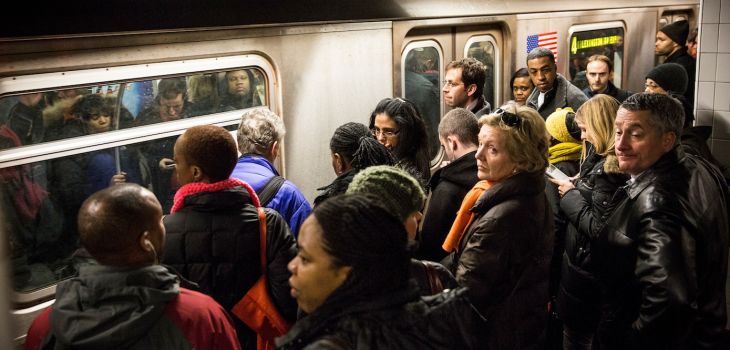Spotlighting Transgender Issues to Cover Multi-Issue Legislative Attacks

Last month, North Carolina enacted HB2, a law that targets transgender people while also broadly attacking workers and local democracy. The full implications of HB2 have not been recognized in much of the media coverage, both in terms of the specific harms to trans workers of color, particularly trans women of color, as well as the broader effect of the law on all workers in North Carolina. By recognizing the full scope of the law while also centering our strategies as advocates for the communities most impacted, we’ll be in a stronger position to fight similar bills when introduced around the country.
HB2’s anti-transgender bathroom provisions have received the most coverage. However, HB2 also strips the ability of cities like Charlotte to pass laws providing workplace non-discrimination protection and removes the rights of workers across the state to bring discrimination charges in state court.
Furthermore, HB2 reinforces existing restrictions on the authority of local governments to pass wage or benefits laws. Under HB2, municipalities cannot improve upon any state standards for wages and benefits, including through their own contracts. HB2 states that localities, even when making contracts for services, cannot make their own decisions with respect to preferencing vendors who offer workers paid sick days or higher wages. In the end, these kinds of state intervention laws—known as preemption—remove municipal control and eradicate the power of individuals to organize themselves and improve their own communities through local legislative action. As a result, our communities lose a core principle of how democracy should work, and marginalized people are even more limited in the ability to effect change where they live, especially in the face of a statewide legislature that wants to maintain an oppressive status quo.
Supporters of HB2 used a time-tested tactic to weaken the rights of marginalized communities. They visibly targeted a vulnerable minority over an issue that the general public doesn’t yet fully understand—here, the right to use a bathroom based on one’s gender identity—while covertly stripping away power from all workers and their families. Even though North Carolina’s Governor Pat McCrory tried to temper the backlash against HB2 by issuing an Executive Order, the action was ineffective and reinforced the law’s anti-transgender bathroom provisions.
Although HB2 violates the rights of all transgender workers, it is important to recognize the law’s particular harm to trans women of color, who face multiple oppressions, economic barriers, and little access to statewide policy makers. Every day, trans women of color across North Carolina and the rest of the country show tremendous strength and resiliency to survive and stay true to who they are, regardless of these growing legislative attacks. Trans women of color also experience interrelated social and economic disparities, including pervasive workplace discrimination, income and housing insecurity, outrageously high rates of violence, and some of the highest HIV prevalence. HB2 and bills like it exacerbate these disparities by sanctioning discrimination, reducing economic opportunity, and further isolating marginalized communities. It has been shown that prejudice towards trans people is reduced when they discuss their lives and experiences face-to-face with cisgender individuals. By restricting the ability to pass worker’s rights and transgender rights at the local level, laws like HB2 diminish the ability for trans women of color to have such conversations with local policymakers and be involved in creating change in their communities. For so many individuals, traveling to the state capitol every day is not a realistic option.
As a trans person, I am of course horrified by laws that criminalize transgender people. Transgender rights need to be at the center of the conversation about HB2, but only a specific slice—access to bathrooms that match one’s gender identity—has been highlighted by the harms of HB2 in many media and advocacy spaces. This narrow focus inadvertently silences other marginalized transgender experiences and disengages other movements that are also being harmed, such as the right to fair wages and benefits, safety, racial and economic justice. Trans women of color, their experiences as workers, and their roles in building local power for their communities should be centered in national conversations about the harms of HB2 and other bills like it. Activists on the ground from groups like Black Lives Matter QTPOC Coalition of NC, Charlotte Queer and Trans People of Color Collective, Southerners On New Ground, Freedom Center for Social Justice, GetEqual, among many others have been educating their communities on these intersections. It’s hard work, but it must be done as we continue our fight for justice against forces that disempower and divide us.
Preston is the National Campaign Organizer through the LGBTQ Work-Family Project, the joint initiative between Family Values At Work and A Better Balance.